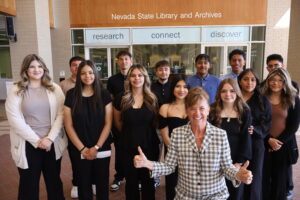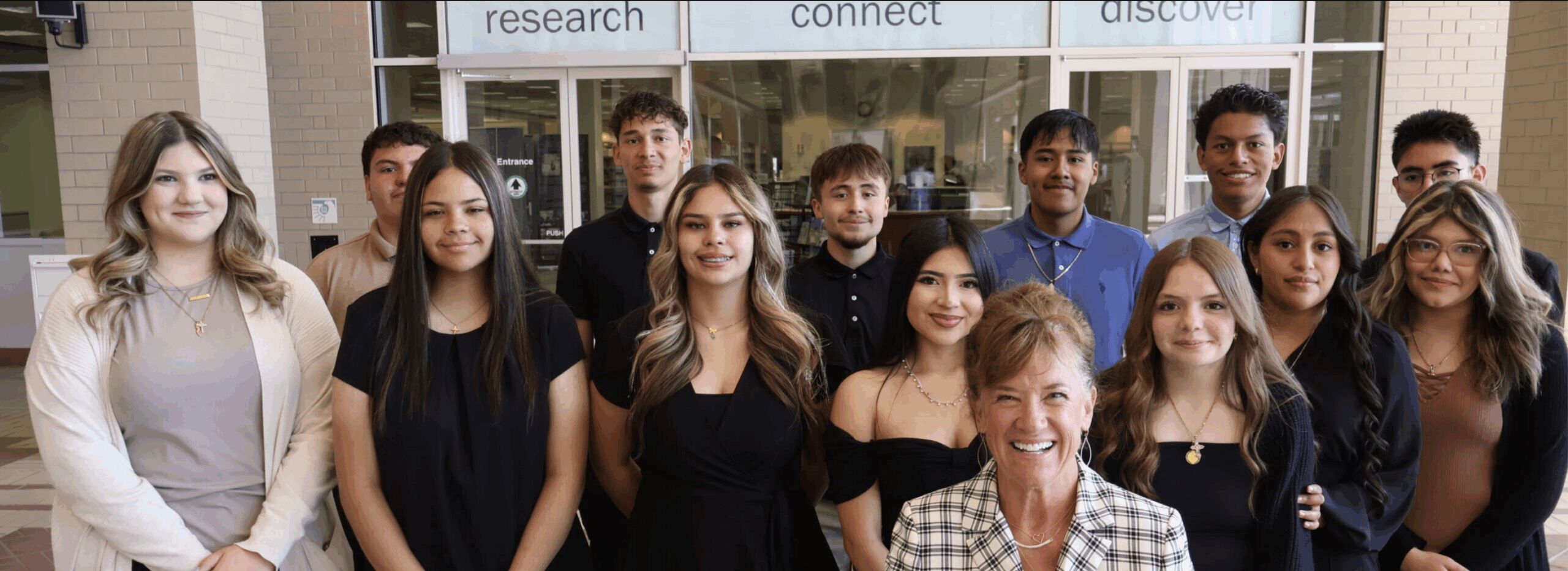What Is Individual Career Mapping (ICM)?
Written by Reese MacKenzie, Summer Intern, University of Nevada, Reno with support from Tammy A. Westergard, MLS, CWDP, Workforce-Librarian-in-Residence
What Is ICM? Why It Matters. What’s Next?
 The Individual Career Mapping (ICM) methodology is a structured, people-first approach to career development that helps individuals, especially those from underserved communities, gain confidence and clarity as they explore job options. By combining immersive virtual reality (VR) experiences with a targeted career readiness assessment and one-on-one coaching, ICM enables individuals to gain a deeper understanding of their interests, strengths, and real-world career opportunities.
The Individual Career Mapping (ICM) methodology is a structured, people-first approach to career development that helps individuals, especially those from underserved communities, gain confidence and clarity as they explore job options. By combining immersive virtual reality (VR) experiences with a targeted career readiness assessment and one-on-one coaching, ICM enables individuals to gain a deeper understanding of their interests, strengths, and real-world career opportunities.
ICM guides participants through a four-phase process: explore, assess, reflect and plan. In the explore phase, users engage with VR field trips that simulate in-demand careers in Nevada, sparking curiosity and new awareness. During the assess phase, they use tools such as the Career Readiness Assessment and ACT WorkKeys. Finally, in the reflect and plan phases, participants work with trained career navigators to build individualized action plans that include training, credentials, and wraparound support.
“ICM helps people discover what’s possible. We start with immersive experiences, but what makes it stick is how we guide participants to reflect, align with their goals, and take action.” – Karsten Heise, Senior Director of Strategic Programs and Innovation, GOED
ICM is active in trusted spaces, including libraries, youth shelters, schools, and reentry programs; reaching job seekers, high school students, and returning citizens alike. This story highlights the explore phase of the ICM journey, which is especially relevant to libraries, schools, and reentry programs that focus on raising career awareness through experiential learning.
Why ICM Matters: Labor Market Literacy
ICM bridges the gap between personal interests and labor market realities. By embedding tools in community institutions, participants are equipped to understand in-demand jobs within Nevada’s priority industries and how to access these upwardly mobile careers.
“Without the labor market context, career planning can feel like guesswork. ICM turns exploration into insight.” – Forrest Lewis, Director, North Las Vegas Library District
At Jackpot High School, seniors utilized ICM to explore union apprenticeships, which were options they hadn’t previously known existed. Rather than relying on interest surveys, ICM combines real-time wage data, skill requirements, and employer needs to demonstrate what’s possible.
Why ICM Matters: Coaching & Local Capacity
The ICM model scales through a train-the-trainer approach that empowers local navigators to coach users with consistency and care.
“What makes ICM work is that it’s structured enough to stay consistent, but flexible enough to meet people where they are. Navigators can tailor the journey without losing the impact.” – Jahairy Rivera, Lead ICM Navigator
Coaching takes place in shelters, courts, and schools. A standardized playbook ensures delivery quality while allowing for flexibility to meet local needs.
Why ICM Matters: Data & Outcomes
Every session in ICM generates data, which is used not only to measure success but also to improve the system.
“We use every insight to refine the method. Tracking outcomes helps us serve people better and more equitably.” – Ansley Fender, ICM Data Analyst
After participating in ICM, a group from a Nevada library site saw a 100% pass rate on the ACT WorkKeys NCRC exam.
“Those scores prove ICM isn’t just engaging, it works. It prepares people for what’s next.” – Leonard Lafrance, President of NCLab
What’s Next for ICM?
 ICM is scaling. New deployments are soon to be underway at The Harbor in North Las Vegas, Washoe County’s municipal court and Storey County’s Community Chest. Phase-two efforts are active at the Domestic Violence Resource Center in Reno and Jackpot Combined School in Jackpot.
ICM is scaling. New deployments are soon to be underway at The Harbor in North Las Vegas, Washoe County’s municipal court and Storey County’s Community Chest. Phase-two efforts are active at the Domestic Violence Resource Center in Reno and Jackpot Combined School in Jackpot.
Seventeen additional VR field trips are in development to showcase Nevada’s mining industry and the breadth of its career pathways. As with all of our field trips—and the ICM itself—the focus is on bringing high-wage, high-opportunity sectors to life to raise labor-market literacy. The model is also gaining wider traction: ICM was accepted into scholarly work at iCERi last November, has been spotlighted by the National Governors Association, and has informed work with the Aspen Institute of Central Europe; a second iCERi paper will be published in November.


